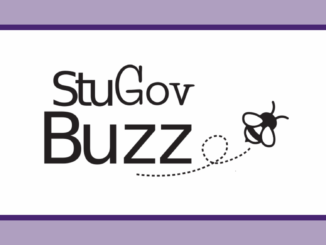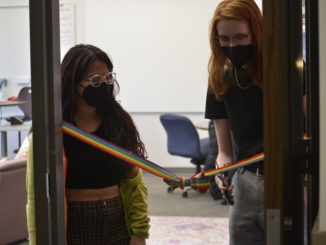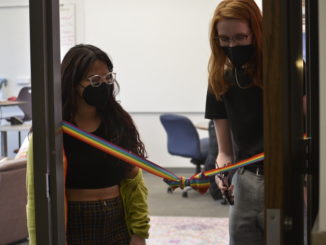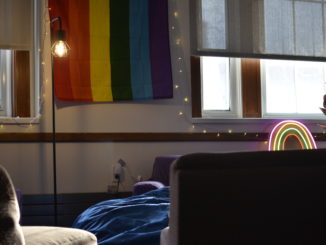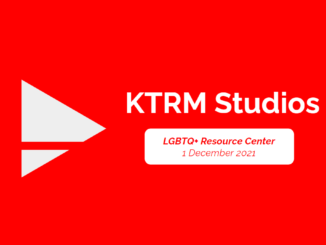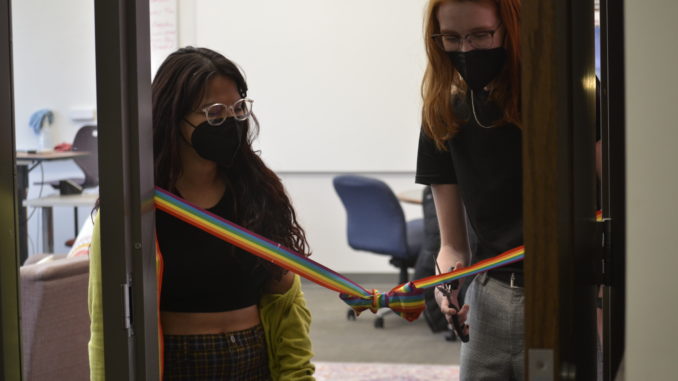
The spring 2022 Student Government elections were held from April 4 to April 8 on the student government website. Students had the opportunity to vote for president and vice president, senior and voting senators, along with the Funds Allotment Council chair.
Junior Kennedy Cooper was elected president in this election. She was the chair of the Diversity and Inclusion Committee on student government for 2021-2022. Her running mate was junior Esther Fox who was the chair of the Health and Wellness committee for 2021-2022.
Cooper and Fox wanted to run together for the executive position to have a more direct route to accomplish goals and work with administration. Along with this, Cooper and Fox want to broaden the scope of issues that student government focuses on. They said the former leaders, Shania Montufar and Ethan Kershaw, did a great job and that they want to continue the good work. The two ran unopposed.
Cooper and Fox said they have four main issues they will focus on as executives. Their first project is diversity. They want to ensure the LGBTQ+ community remains supported, add gender discrimination to the non-discrimination policy, encourage faculty diversification and revise intercultural perspectives to be focused on more modern issues and world affairs.
The second project Cooper and Fox want to work on is campus culture. They want to help increase enrollment, provide more transparency on how student fees are spent and begin to reframe the athletics fee, which will take a few years.
The third project is to help the campus environment. They want to provide stronger communication between student government and the various environmental groups on campus, provide information on how to be sustainable at Truman in self and society courses, and work on improving and supporting the university garden.
Their fourth project is health, wellness and safety. They will continue the discussion of COVID-19 and its impact on students, work to have the University Counseling Services and Student Health Center be more accessible and work to have more mental health programming from student government along with establishing a Mental Health Designee position to work with student government. Cooper and Fox also seek to provide more avenues of support for mental health on campus.
Cooper and Fox encourage everyone to get involved with student government. Their meetings are every Sunday at 5 p.m. in the Sub conference room and are open to the public. In addition to this, there are associate senator positions that almost any student can apply for. The time commitment for this measures at about an hour a week with one meeting.
Sophomore Santino Bono was elected to be a senior senator for the upcoming year. Previously, he has been a voting senator, sub-committee chair for the Purple Friday Committee and a member of the Academic Affairs Committee for 2021-2022. He explained he was motivated to remain on the body by seeing the impact that student government has had, such as the success of the LGBTQ+ resource center.
As a senior senator he will be responsible for helping new senators learn about the various procedures and rules of student government.
“It’s really great because when you teach them you get to know them pretty well,” Bono said. “Despite tons of different opinions on the body, I’ve never met a member that I’ve super disliked. You can always find redeemable qualities in all of these people because they have a desire to represent thousands of people and you can respect that,” Bono said.
Bono wants to see student government continue to push to address mental health support on campus. He wants to work with groups in student government to make progress on things such as making mental health resources more accessible for people on campus.
Freshman Colleen O’Reilly was elected to be a voting senator in this election. Before this, she was an incoming senator elected in fall 2021 and was on the external affairs committee. O’Reilly said she was on student government in high school, which motivated her to continue in college. She said student government does important work, such as launching the LGBTQ+ resource center, so she wanted to become part of it.
O’Reilly said she tries to put the message of student government out on campus and receive input from people around her. She asks people in her club meetings about activities that student government is doing or what they believe the body should be doing. She also makes sure to communicate with her friends regarding it as well.
Sophomore Alicia Stout was first elected to student government for the first time this semester.
“In high school I was really involved in student government.” Stout said. “After talking to Santino Bono, and talking about how student government runs and what voices they’re looking for, I felt reunited with that interest of mine, which is what drove me to run,” Stout said.
Alicia said she was additionally motivated by seeing all that student government has accomplished so far this year with the success of the LGBTQ+ resource center. She wanted to be a part of the organization.
Access to mental health and disability services are two important issues to Stout. She knows people around her who have struggled with finding adequate services, so she wants to push for people to have greater access to those needs. Along with this, she wants to continue pushing for diversity and inclusion on campus because Truman is home to a diverse array of people. Stout said she is excited to represent queer people and their interests on student government.
Sophomore Owen Smith was the elections administrator for the spring 2022 elections. Turnout for this election has increased when compared to fall 2021, but is still less when compared to spring 2021, Smith said. Around 10% of the University turned out for this election. Smith said he was not surprised or concerned about the turnout, as a small turnout is typical for student government elections at Truman.
Smith said recruitment for candidates was difficult this year with only six candidates being declared by the deadline before elections. However, a large number of candidates signed up to run on the day of the deadline. Ultimately, 20 candidates ran for election.

